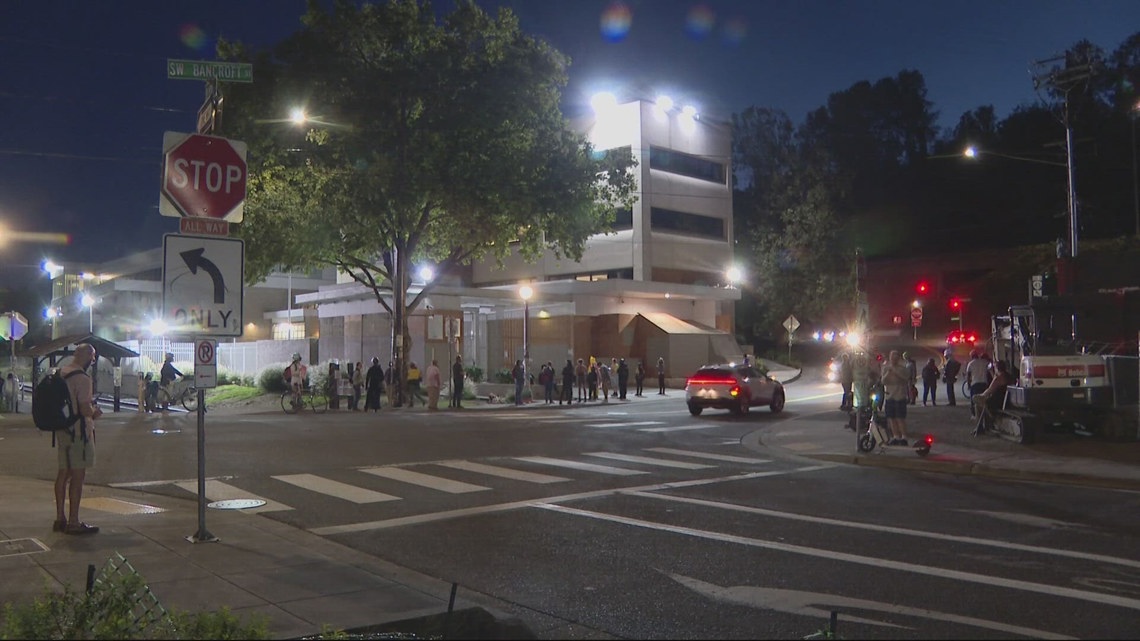A three-judge panel overturned the order blocking Trump from sending the National Guard to Portland, but Oregon asked for the appeal to be reheard by a larger panel.
PORTLAND, Ore. — The full 9th Circuit U.S. Court of Appeals has granted Oregon’s request to reevaluate a three-judge panel’s decision to overturn the first of two temporary restraining orders from U.S. District Court Judge Karin Immergut that blocked President Donald Trump from deploying Oregon National Guard troops to Portland.
The decision vacates the three-judge panel’s ruling but doesn’t directly reverse it; the case will now be heard by a larger panel of 11 judges on the 9th Circuit in what’s called an en banc hearing. Immergut’s first restraining order will remain in place in the meantime, preventing National Guard troops from being deployed to Portland’s streets.
“This ruling shows the truth matters and that the courts are working to hold this administration accountable. The Constitution limits the president’s power, and Oregon’s communities cannot be treated as a training ground for unchecked federal authority,” Oregon Attorney General Dan Rayfield said in a statement Tuesday evening. “The court is sending a clear message: the president cannot send the military into U.S. cities unnecessarily. We will continue defending Oregon’s laws, values, and sovereignty as this case moves forward and our fight continues in the courts.”
The Portland City Council said in a statement that it “is grateful the Ninth Circuit has voted to hear our case en banc.”
Immergut’s second order is also still in place; the Trump administration requested last week that she throw out the second order in light of the 9th Circuit panel’s ruling on the first, and Immergut initially said she would issue a decision by Monday of this week, but there’s been no word from her so far, and that’s unlikely to change now that the ruling on the first order has been vacated.
The first temporary restraining order is set to expire on Saturday, and the second on Sunday, but Immergut has already extended them both once and could do so again.
Two temporary restraining orders
The court battle began soon after Trump announced in late September that he would federalize 200 Oregon National Guard troops and deploy them to Portland to assist with security amid ongoing protests outside an ICE facility in the city’s South Waterfront Neighborhood.
Trump made repeated incendiary and inaccurate remarks about Portland in the weeks leading up to the announcement, such as that the city is besieged by “Antifa and other domestic terrorists” who want to “burn the place down.” Local officials have strongly disputed his characterizations of the protesters and the necessity of sending in troops.
The Oregon National Guard normally reports to the state’s governor, but U.S. law gives the president the power to place National Guard troops under federal command in extreme circumstances. Oregon sued in U.S. District Court, arguing that the conditions on the ground were nowhere near bad enough to trigger Trump’s federalization authority.
The state also asked the court to block the deployment while the court case played out. Immergut granted that request on Oct. 4, issuing her first temporary restraining order, blocking the deployment of Oregon National Guard troops to Portland.
RELATED: Timeline of events leading up to National Guard deployment in Portland
The next day, Trump began preparing to deploy troops from California and Texas to Portland, which Oregon argued was an attempt to circumvent the restraining order. Immergut agreed and granted her second temporary restraining order, blocking the deployment of National Guard troops from any state to Portland.
The Trump administration appealed the first restraining order to the 9th Circuit on Oct. 6, but did not appeal the second. The three-judge 9th Circuit panel issued its decision overturning the first restraining order on Oct. 20, and in the subsequent days Oregon made its request for a 9th Circuit en banc hearing and the Trump administration made its request for Immergut to dissolve the second order.
The entire court battle to date has focused solely on the restraining orders, which only block Trump from continuing with the deployment while the underlying court case plays out. A three-day trial on the merits of the case is set to begin Wednesday in Immergut’s courtroom.
If Immergut sides with Oregon on the merits, that decision would permanently block Trump from deploying troops to Portland in response to the current protests, and would compel him to send them home if they’ve already been deployed by then — although the Trump administration would be able to appeal that decision to the 9th Circuit as well.

